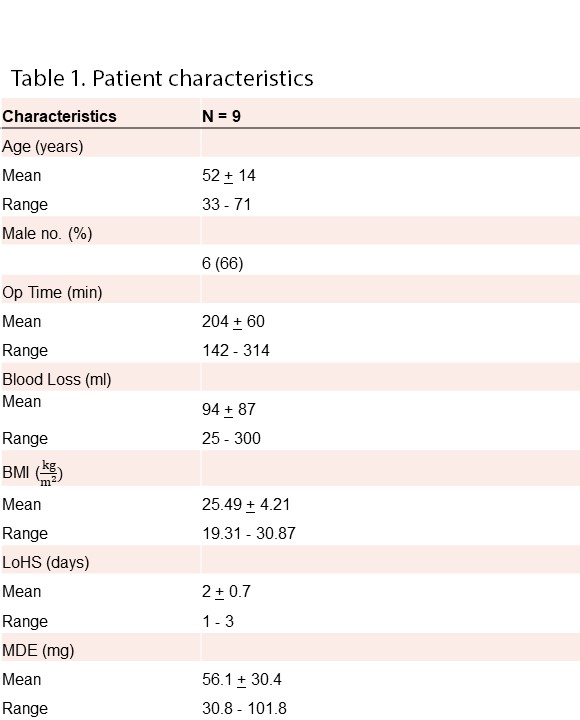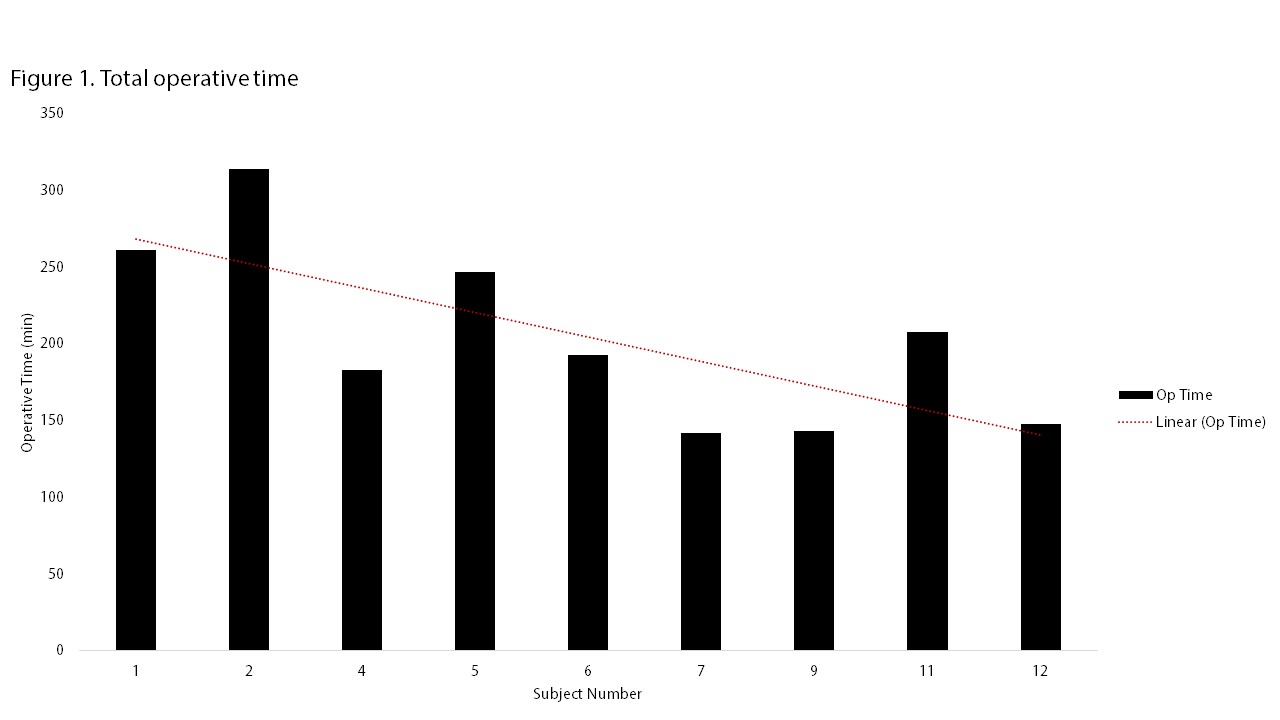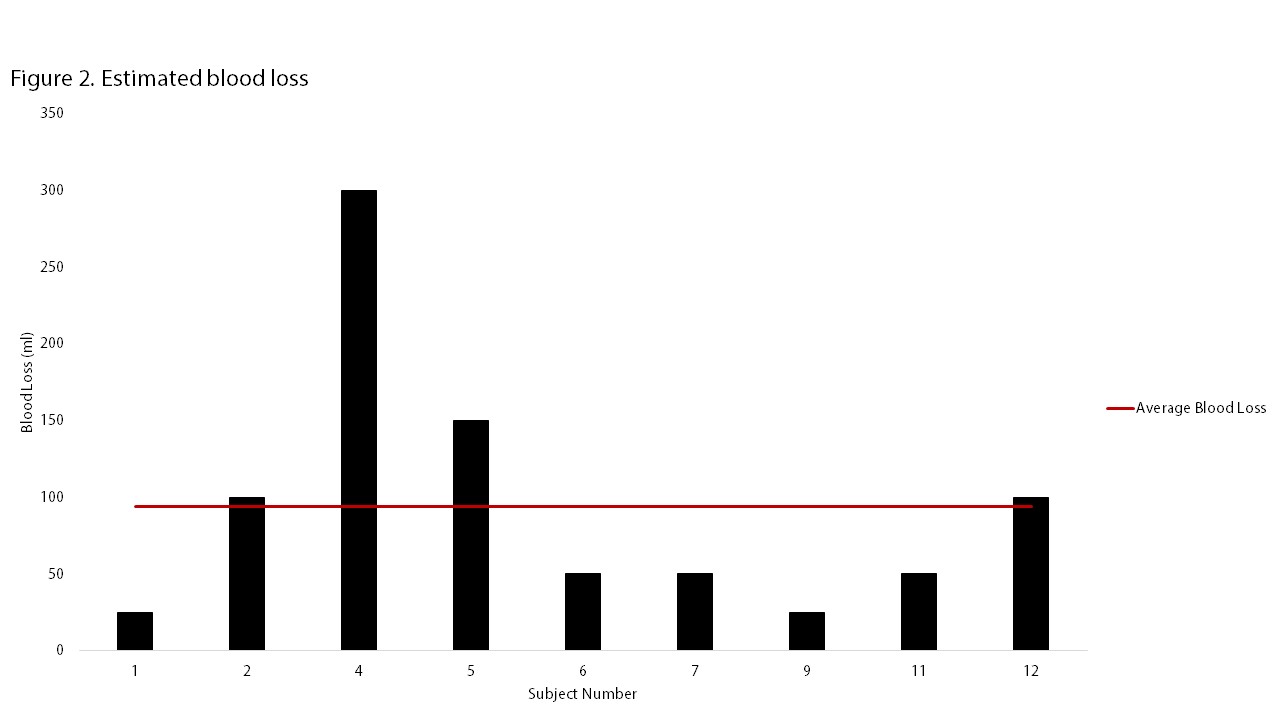Efficacy of Robotic-Assisted Bilateral Nephrectomy from a Single Approach
Surgery, University of Utah, Salt Lake City, UT
Meeting: 2020 American Transplant Congress
Abstract number: A-101
Keywords: Kidney, Kidney transplantation, Nephrectomy, Renal failure
Session Information
Session Name: Poster Session A: Surgical Issues (Open, Minimally Invasive):All Organs
Session Type: Poster Session
Date: Saturday, May 30, 2020
Session Time: 3:15pm-4:00pm
 Presentation Time: 3:30pm-4:00pm
Presentation Time: 3:30pm-4:00pm
Location: Virtual
*Purpose: Bilateral native nephrectomies have been established as beneficial for ESRD (end-stage renal disease) patients with select indications in pre-transplant settings to avoid related complications. Yet, much debate remains concerning surgical modality and associated perioperative outcomes. Herein we evaluate the efficacy of robotic-assisted bilateral nephrectomies from a single approach.
*Methods: A total of 12 patients were consented for this study at a single-center. To be eligible for participation, participants needed to be 18 years of age and will be undergoing a robotic-assisted bilateral nephrectomy from a single approach. Of 12 patients, 3 patients did not meet study criteria and were excluded. Outcomes assessed post-operatively include total operative time, estimated blood loss, length of hospital stay, morphine dose equivalents (MDE), rate of complications, and conversions to open surgery.
*Results: Patient demographics and results are reported in Table 1. Mean operative time was 204.3 + 59.7 minutes (142.0 – 314.0) and estimated blood loss during operation was 94.4 + 87.3 milliliters (25.0 – 300.0). The mean length of hospital stay was 2 + 0.7 days (1 – 3) for all subjects. Total post-operative opioid usage was normalized to morphine dose equivalents (MDE) and calculated to be 56.1 + 30.4 MDE (30.8 – 101.8). 2 subjects were readmitted (< 30 days) for a planned living donor kidney transplant and dialysis fistula placement. There were no reported complications or conversions to open surgery following the procedures.
*Conclusions: Overall, operative and post-operative complications were minimal. Longitudinal studies are in progress to further assess the efficacy and outcomes of this procedure. These data suggest that robotic-assisted bilateral nephrectomies from a single approach are viable and provide a novel tool for treatment of ESRD patients requiring this procedure.
To cite this abstract in AMA style:
Pan G, Goodale M, Martinez E, Rofaiel G. Efficacy of Robotic-Assisted Bilateral Nephrectomy from a Single Approach [abstract]. Am J Transplant. 2020; 20 (suppl 3). https://atcmeetingabstracts.com/abstract/efficacy-of-robotic-assisted-bilateral-nephrectomy-from-a-single-approach/. Accessed February 16, 2026.« Back to 2020 American Transplant Congress



